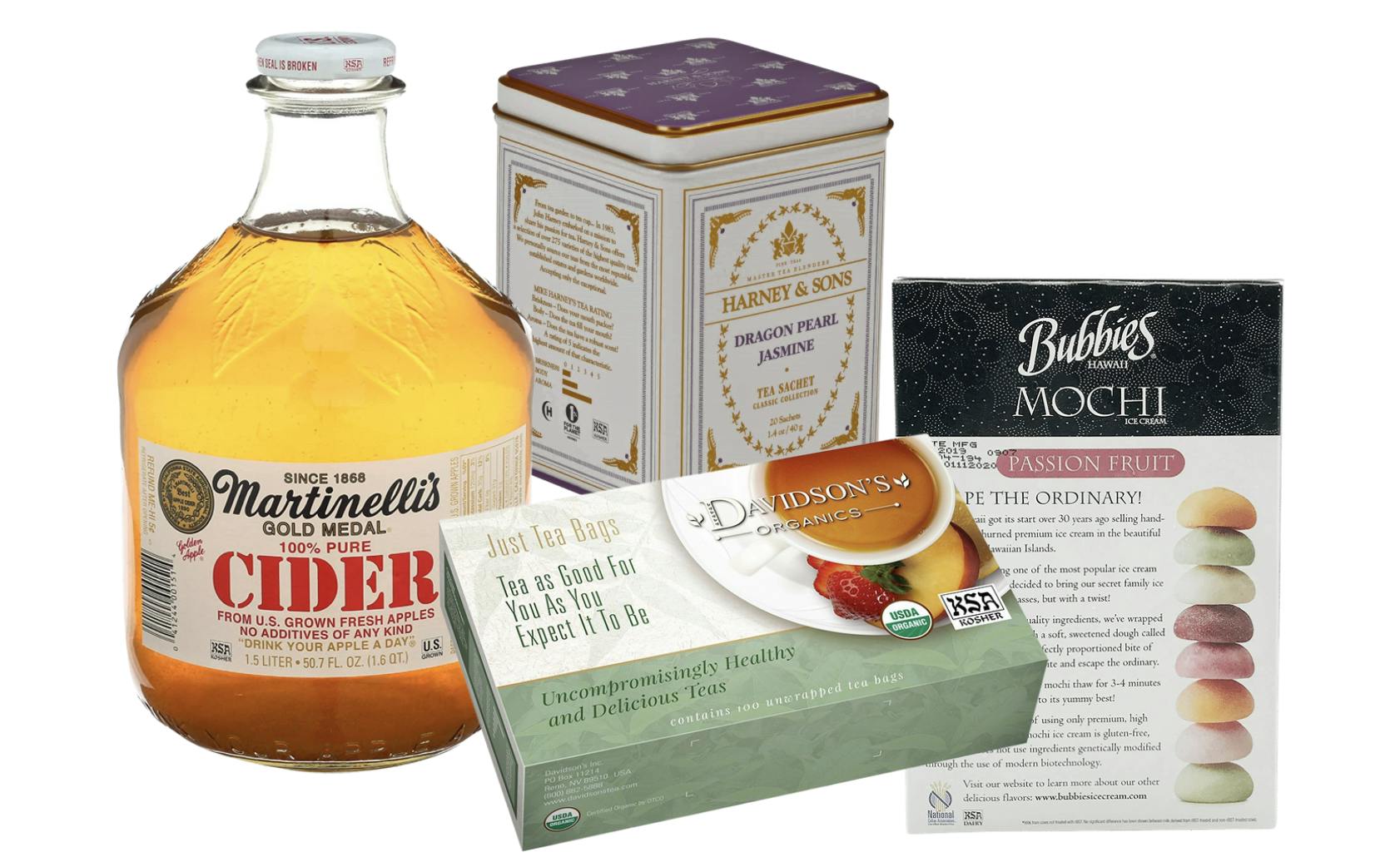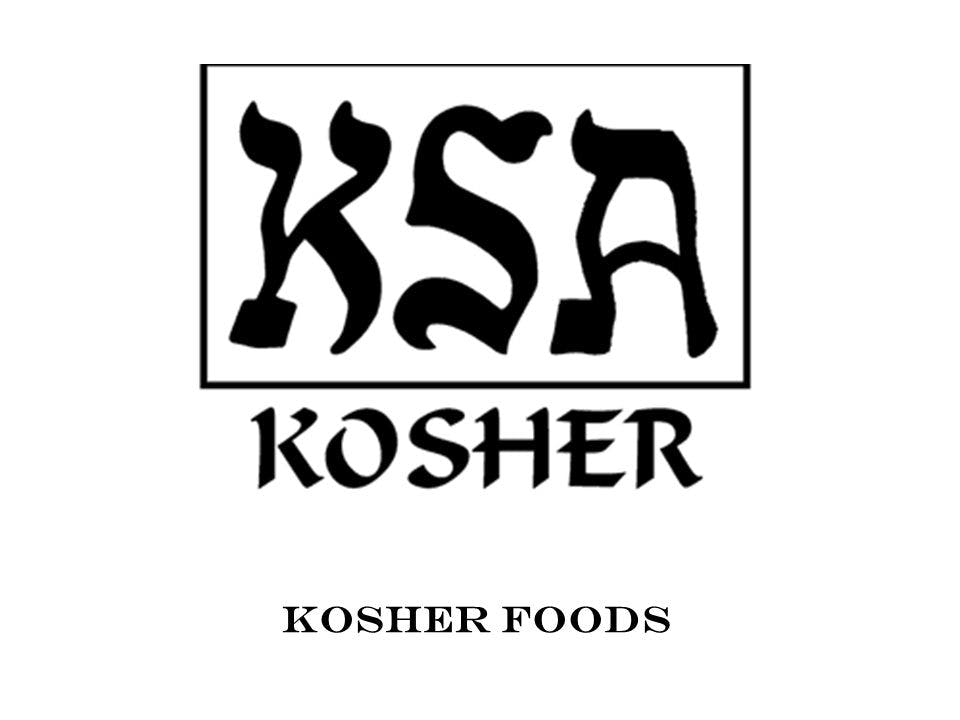Over the past 40 years, the demand for Kosher-certified products has dramatically increased as Kosher has become one of the most popular food trends. There are currently an estimated 1.1 million Kosher certified products in the world right now, with that number growing every year. According to an article in U.S. News and World Report, “the Kosher food industry has risen 15% a year” over the past decade leading to a commensurate rise in consumer products.
Consumer behavior studies consistently indicate that when selecting among products, customers prefer those bearing Kosher certification.
“Over 12 million American consumers choose Kosher food products for reasons related to health, food safety, taste, vegetarianism, lactose intolerance, and other dietary restrictions.”
– Mintel State of Kosher
The Mintel State of Kosher study noted that 1 in 4 new products brought to market bears a Kosher symbol. There are numerous reasons for this, including the idea that consumers regard the Kosher symbol as an additional indicator of quality, somewhat similar to the well-known and well-respected Good Housekeeping Seal of approval.
What Is Kosher?
Let’s take a look at what “Kosher” is… and what it is not. It may be best to lay out what it is not first:
Kosher certification does not involve “blessing the machinery” or other incantations. The application of Kosher rulings is mostly an exercise in information management and administrative acumen.
“Kosher” means “fit” or “proper and acceptable.” Interestingly, over time, its usage has become ubiquitous, and many utilize it to convey “fairness.” As it applies to food items, to be certified Kosher a product’s production must conform to a set of conditions outlined in accepted canonical directives. Kosher supervisory agencies’ responsibility, such as the KSA, ensures that all ingredients and preparations follow those rulings.
The traditions and decisions that form the basis for Kosher law have been standard fare for the Kosher-conscious consumer for millennia. As technology and food production methods have evolved, Kosher law’s application has been flexible enough and sufficiently broad to decisively address each new challenge. Many of the world’s innovative food technology companies producing vegetarian products, Non-GMO, organic, etc., will consult their Kosher certification partner while conducting research and development to ensure that their product will be available to the Kosher-conscience consumer. Kosher Supervision of America, the KSA, maintains a staff of certified supervisors and functional consultants who have mastered Kosher laws and have a deep understanding of production’s logistical challenges.
How can I certify my products?
“In the US, there are an estimated 11,400 certified Kosher facilities and 12.3 million Kosher-conscience consumers. To date, the Kosher food industry has developed into a $12.5 Billion industry.“
– Lubicom Marketing Consulting
Kosher programs are tailored to your brand’s needs. Production facilities, equipment, and the number of finished goods vary by producer and plant. Many manufacturers purchase and produce ‘just in time’ while others plan months or even years in advance. A well-constructed certification program includes the ingredients and manufacturing environment.
Whether retail, commercial, or industrial, the demand for Kosher products has created a marketplace pressure that strongly points manufacturers in the direction of certification. When we assist our clients with Kosher ingredient procurement, the overwhelming majority of producers already have some Kosher certification level, making it much easier to devise Kosher procedures for clients.

Benefits of going KSA Kosher
KSA’s five commitments to brands in the CPG industry:
- KSA is committed to upholding the highest standards of Kosher law.
- KSA is committed to all of its clients and the Kosher consumer.
- KSA is committed to fast, high-quality customer service.
- KSA is committed to the use of state-of-the-art technology to streamline your Kosher program.
- KSA is committed to providing certification at an affordable and reasonable cost
KSA has earned the Kosher marketplace’s trust. KSA’s expanding and global footprint is a result of our five customer commitments. Consumers choose Kosher products as a value-added aspect of their food shopping for perceived health benefits, the comfort of an independent agency overseeing the productions, or religious reasons.
As the niche markets multiply and manufacturers abound, the savvy marketer knows that they need an established “hook” to take advantage of immediate consumer recognition. In many cases, the KSA symbol is that “hook.” Our internationally acclaimed and recognized symbol presents an obvious standard of quality and market acceptability to any package it appears on.
KSA recognizes its responsibility to the consumers, the industry, and the creed of integrity, with industry-leading “best in class” customer service. KSA’s four decades of experience and expert team directs brands regarding numerous Kosher-related issues. These include in-service education on seamlessly integrating your Kosher program, as well as cost-effective production and ingredient alternatives if necessary.
KSA will work with you to find practical solutions without compromising Kosher standards or encumbering your production culture.
Others may ask you, “Can you afford to Go Kosher”? In truth, can you afford not to? Visit KSA Kosher in RangeMe Services here for more information on how to get your products Kosher certified.
About the Author

This article is composed by the Kosher Supervision of America founded in 1995 by Rabbi Binyomin Lisbon, and now one of the most recognized and accepted Kosher agencies Worldwide.
KSA Kosher is the largest recognized and accepted Kosher certification agency in the Western United States. KSA has uniquely positioned itself as a nimble resource for producers and suppliers. We have the depth of understanding and the breadth of expertise to quickly and effectively define a client’s needs and position them for optimum ease of production, logistics and maximum market penetration.
